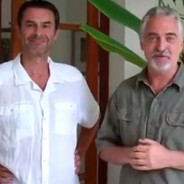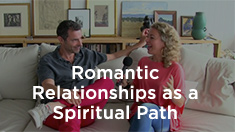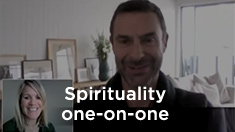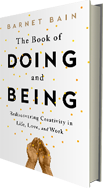Blog
Emotionally Charged Connections are Crucial to Your Success
I recently had the opportunity to do this new, five-minute video with Dr. Ivan Misner, Founder & Chairman of Business Networking International. I share a two-step process for being able to connect emotionally with others in a way that always focuses on helping and supporting them which is critical for you to succeed in your own life, and relationships. If, after watching the video, you would be willing to share in the comment forum what you learned about yourself upon completing the two-step process, and also what you discovered as far as how you might better be able to form emotionally-charged connections with others, then we can all benefit from each other....
read moreConversation with Barbara Marx Hubbard
In Conversation with Barbara Marx Hubbard and Barnet Bain. Excerpts from Barbara Marx Hubbard’s Regenopause: Evolving Masculine and Feminine Webinar. This extensive interview is spread out over six pages – it was so good, I had to publish the whole thing. Enjoy! Use the page links at the bottom to navigate to the next page. Barbara: And before we get going, I just want to introduce Barnet – so he can say a few words about how you feel about being in the chrysalis with me and all these people, probably mostly women? [Laughs] Barnet: Well, you know, right now we couldn’t be in more of a chrysalis. We’re so confined, and it’s so beautiful in here and cozy in here. [Barbara laughs] We have talked so long and so deeply and so blissfully about what it is to be in the chrysalis, from this man’s perspective it is a highly, highly dynamic experience. There’s nothing passive about it. And very often we hear people referring to this shift of paradigms, and we hear it referred to in so many different ways. But very often we hear about it as a passive experience, as something that happens to us. And that has not been my experience as a man in the chrysalis, which I refer to it in our conversations as the liminal state. It is the state of ‘between’. It’s not what was, and it is not what will be. But I experience myself as ‘not what was’. I am aware of what was. And I also am aware that I am not yet what will be. But I am in a very dynamic, dynamic practice, which at this point rises to the level of artisanship. I am discovering technique. And I invite you all to come with me a little bit as we explore the tools of technique that are used to fire up the creative, the space-filling component, the art-making component of what we will be, what we are birthing – the world waiting to be born through us. And these have to do with, from my perspective, certain energies that are primarily feminine. Now, when I speak of feminine energies or masculine energies, I’m not talking about gender here. I’m talking about the idealized feminine energy and the idealized masculine energy. These are the energies that need to be refined and remembered in men and women alike. The masculine energy: this is the energy that fills spaces. This is the creator energy. The idealized feminine energy: these are the energies that conceive even the possibility of something. It creates the potential for something, the spaciousness, the bubble that is blown “whwhwh” to create the womb for that which is yet to be born. And what is born, what it is that fills that space, is filled as a creation of masculine idealized energy. It works in a dance. It works in a synergy. Together they create some mystery called “all that is.” [Barbara laughs] So it is my experience as an artisan moving towards artist, and as a man, that I’m looking to develop the skills of bootstrapping up my capacities to engage, to invite, and to be open to those idealized feminine energies. And those energies are imagination and expectation, and desire. All of...
read morePratt & Whitney Rocketdyne’s Enterprise Thinking Network
Pratt & Whitney Rocketdyne’s Enterprise Thinking Network welcomes Barnet Bain to lead our sixth Ongoing Discussion on June 24th and 25th (and our 126th session since we began in 2000). For his title, Barnet has chosen “From Spectator to Spec-Actor,” a fitting topic to focus or conversations on the transformation process he’s been engaged in, both personally and through his films, including the Academy Award winning movie “What Dreams May Come.” As for Thought Pieces, Barnet has selected a 3-part interview he conducted in April with Filippo Voltaggio on the topic of subtext (links to Part 1, Part 2, and Part 3), plus his online column, The Tao of Hollywood (link to be included). Please join your Ongoing Discussion colleagues from across the country and around the world for a conversation with Barnet on a theme that embraces the fundamental way in which the “prevailing system of management,” as defined by Dr. Deming, serves to perpetuate a set of beliefs that are self-limiting for a rapidly changing world. As a case in point, if our organizations are in need of being able to do “more for less,” then teamwork offers the value proposition of being able to work, learn, and innovate together. For a team to “work together,” the members participate on the team, rather than serve as spectators of the team. In doing so, apparent “spectators” become “spect-actors,” in Barnet’s simple play on words, wherein participation is a necessity for team work. In consideration of World Cup soccer (or, football for those outside the US), a player who is removed from the match, late in the game, to allow for a substitute player with more energy, is still a member of the team. So is the coach who guides the efforts and the many assistants who prepare the players before, after, and during the match. As the saying goes, “One for all and all for one,” and the efforts to score and win are well understood to be caused by the team, which extends to include equipment suppliers and customers, including us the fans. Who’s to blame for a disappointing outcome if all are “one”? Should blame be directed at another teammate, leading to “spectator” status, or to oneself reframed as response-ability, leading others to become “spect-actors.” Is blame itself an obsolete management mindset? Much the same can be asked re legislators who are elected to government, be it in the UK Parliament or the US Senate. For these officials to blame a faceless “Wall Street” or other specific corporate executives, is to bring into question the status of the officials, who have thereby adopted spectator status. Far different would be for the Senators to inquire as to how the legislation contributed to the disappointing outcome and to see their own role in it. Likewise, far different would be for automobile drivers to see themselves as spect-actors of the recent BP oil spill in the Gulf of Mexico. In reviewing Barnet’s “Thought Piece” videos and online articles, be prepared for an enlightening conversation with a movie director (The Lost & Found Family) and producer (What Dreams May Come) who has been on a long journey from spectator status to spect-actor status. Join in for an explanation of how this journey has changed the selection of the movies he directs...
read moreTao of Hollywood – All the World is a Stage
You might have noticed a lot more stress in the world, and maybe also a few more challenges for each of us to handle personally. By now you know there is a shift happening. We are at a crossroads moving from one ‘operating system’ of reality to another more expansive one. Merrily, merrily, merrily, merrily…life is but a dream. Imagine that you’re experiencing a night dream. You are walking on the sidewalk of a busy street after a heavy rain. Suddenly a bus comes along. The bus slams into a pothole sending a cold sheet of mud and water flying your way. How are you feeling? You are drenched to the bone, filthy and cold. Maybe you were rushing to an appointment. You might even believe the blankety-blank bus driver soaked you on purpose. That’s when the alarm goes off and you wake up in your bed. From this awakened perspective you say with relief that it was just a dream. But let’s look a little further. What do we know now? YOU were the dreamer who dreamed the story. YOU were the unfortunate character who got soaked. YOU dreamed the bus driver. The streets are YOU. The bus is YOU. The pot hole and puddle, all YOU, as well. You were the director of the dream. You wrote the script and played all the parts. You chose to stage the story one way, and not another. From the limited perspective of the walker who got soaked, life is one thing. From the more expanded perspective of the awakened dreamer it is something else. We create it all. The most important key to reducing the stress begins with accepting that we each write the script of our lives completely. We always have. To explore this idea a little deeper, WRITE OUT two or three areas of success, or joy in your life worthy of celebration. For example, maybe you have created a beautiful and intimate relationship with a soul-mate, or achieved a promotion at work or won a Golden Globe! Next ask yourself “What would someone have to believe or feel about herself in order to dream this success?” Then write down two or three areas of failure or disappointment, and ask yourself the same...
read moreSuccess Clues From the Movies
From time to time I am asked what makes a ‘spiritual’ movie? I would love to hear from anyone who can offer an answer. Until then I hope this will do. For all of us learning to generate magical lives, do movies reveal a clue? If the primary reason we are here in the first place is to remember who we are; to ourselves, to each other, to the whole She-bang, then maybe it is our destiny, I hope, to understand and achieve success. To learn to consciously create it. So I am always alert for tips. Here then, some clues to enlightenment I found in the dark. From ACTION HEROES I get what it means to live every moment as if it is my last. To be engaged, involved and committed to a cause. To participate with honor. And the importance of get-up-and-go. LOVE STORIES unfold in enchanted pockets of gracious giving and receiving. They foster my compassion for the loss and hurts of others; physical, emotional, mental and spiritual. Very different from opportunism and entitlement. They tease open my heart and mind. SPACE OPERAS AND SCI-FI help me see past the world of form. Beneath the veneer of every alien civilization and dimension await shared universal tests. How do I make a difference? What maps do I make to ease the way for myself and others? To be More. Live more. Stretch more. Forgive more. And what am I prepared to move beyond (or leave behind) to access the Force within. To go boldly into the unknown. From DRAMA I connect with the feelings of others. How do I deal with my own relationships: spouse, children, friends, boss, colleagues? With myself? Higher Self? God/Goddess/All That Is? When I can recognize myself in another person it increases my response-abilty. COMEDIES always force me to wonder why I take myself so seriously. Funny movies remind me to laugh. To find humor in the frantic dance I do for love without remembering I am loved all along. To shrug off mistakes, and lighten up. HORROR MOVIES AND WAR FILMS have lots to reveal about what is dark in me as well as what is light. Often pointing to judgements or emotions that are not fully expressed, or I am denying altogether. Movies that arouse strong feelings of antipathy in me are always a sure sign of resistances, fears, and blockages to my growth that persist below the waterline of my awareness. What I resist...
read moreDrama
Drama. What is drama anyway? In the language of entertainment, drama is conflict. It’s what happens when one character’s set of hot-button adrenaline charged themes, beliefs or values comes into direct opposition with somebody else’s tightly held and equally charged themes, beliefs or agendas. The primary ‘player’ in dramas, the one with a vested position to protect is usually the ego. The ego always tries to protect its noble opinion of itself, its position as ‘opinionator in chief.’ I’ve been wondering why we tend to remember big dramas more often than the pleasant stories, and I think this is just as true in life as it is in the movies. Pleasant stories get a bad rap in our world. How often do we hear the words ‘chick flick’, or ‘soft’, or ‘lifetime weepie’ used as a form of put down? It’s code for unmanly entertainment. In fact, we can easily become addicted to our drama. Conflict dumps cortisol, adrenaline, and God knows what else into the blood stream. So why do we tend to obsess on drama, focusing relatively less attention on the flowing, pleasant experiences of life, those devoid of rife and conflict? If this question rings true for you, and it’s a situation you’d like to change, here is a helpful technique. WRITE OUT one or two dramas from your past. Look for the distressing stuff, things you find yourself remembering obsessively over and over again even though the incident itself may be water long under the bridge. Maybe there’s a theme that’s tended to repeat itself with other players in other situations over the years. For example I once had an old business relationship that came to an end after a lot of drama. Years later I was still reviewing it over and over in my thoughts. At last I understood I was hooked on the ego rush of righteousness and nobility. The next step is to write down an inventory of your pleasant experiences. You may find yourself recalling memories you’d almost forgotten. Take note of how it feels to remember them. Finally each time you catch yourself replaying or caught up in drama, remember to make a conscious choice to revisit and respect the pleasant, beautiful experiences of your...
read moreThe Secret of Subtext
To an actor or director, subtext is a word for all the unspoken thoughts, feelings and motivations a performer brings to her role. Subtext is always unspoken, yet it is the most eloquent aspect of an actor’s performance coloring every speech and action. But subtext is not to be found in the script. It comes from the actor’s unique interpretation of the story, mined from personal memory, life experience, and imagination. That is why the same script or play can be performed again and again by different actors and still remain fresh. A musician calls his fiancee from a tour date on the road. “I love you” he declares to her. Does he say it with his full attention, or with one eye on online poker? Is he planning a date downstairs in the bar? Is he wanting to flirt with her, provoke her, or rush her off the phone? The same words can be said with an infinite variety of intentions. The subtext always expresses our deeper motivations, the ‘under the table’ and subconscious intentions that truly run our lives. This is the level of communication we sense when we are ‘reading between the lines’. Just as the characters in a movie know very little about the underlying intentions that drive them, we don’t generally start out aware of the power of our own subtexts in our lives, sometimes turning to personal growth or spirituality to seek understanding. We soon learn by experience that even small changes to our inner lives changes our life stories as well. Inscribed on a small bronze sculpture of a writer’s pencil that sits on my table are the words of Jean Renoir, the great French movie director and son of Pierre Auguste. ‘One only ever makes one film in his life’ said Renoir. I believe that is as true in life as it is in movie-making. It is a reference to the power of subtext. Without the ability to discover and change our personal beliefs, feelings and conditioned thinking, we repeat and respond to every experience life offers us from the same set of intentions. Nothing ever changes. Fortunately one of the gifts of the spiritual journey is the power to become ever more conscious. Here is some technique I practice. Pay attention to what you are feeling. Listen to your thoughts, and beliefs. Notice if what you are thinking is original with you, or part of conventional wisdom and hand-me-down thinking. Even though I was raised in a small village in Northern Quebec, both my parents loved and admired the American President Kennedy. No surprise that at ten years old I was already identifying as a proud Democrat, never mind that I knew nothing of politics, and, oh, yeah, we were all Canadians. That’s a hand-me-down...
read moreAll the World is a Stage
I hope you had a beautiful holiday season celebrating the past and future, and connecting with loved ones. You might have noticed a lot more stress in the world, and maybe also a few more challenges for each of us to handle personally. By now you know there is a shift happening. We are at a crossroads moving from one ‘operating system’ of reality to another more expansive one. Merrily, merrily, merrily, merrily…life is but a dream. Imagine that you’re experiencing a night dream. You are walking on the sidewalk of a busy street after a heavy rain. Suddenly a bus comes along. The bus slams into a pothole sending a cold sheet of mud and water flying your way. How are you feeling? You are drenched to the bone, filthy and cold. Maybe you were rushing to an appointment. You might even believe the blankety-blank bus driver soaked you on purpose. That’s when the alarm goes off and you wake up in your bed. From this awakened perspective you say with relief that it was just a dream. But let’s look a little further. What do we know now? YOU were the dreamer who dreamed the story. YOU were the unfortunate character who got soaked. YOU dreamed the bus driver. The streets are YOU. The bus is YOU. The pot hole and puddle, all YOU as well. You were the director of the dream. You wrote the script and played all the parts. You chose to stage the story one way, and not another. From the limited perspective of the walker who got soaked, life is one thing. From the more expanded perspective of the awakened dreamer it is something else. We create it all. The most important key to reducing the stress begins with accepting that we each write the script of our lives completely. We always have. To explore this idea a little deeper, WRITE OUT two or three areas of success, or joy in your life worthy of celebration. For example, maybe you have created a beautiful and intimate relationship with a soul-mate, or achieved a promotion at work or won a Golden Globe! Next ask yourself, “What would someone have to believe or feel about herself in order to dream this success?” Then write down two or three areas of failure or disappointment, and ask yourself the same...
read more
